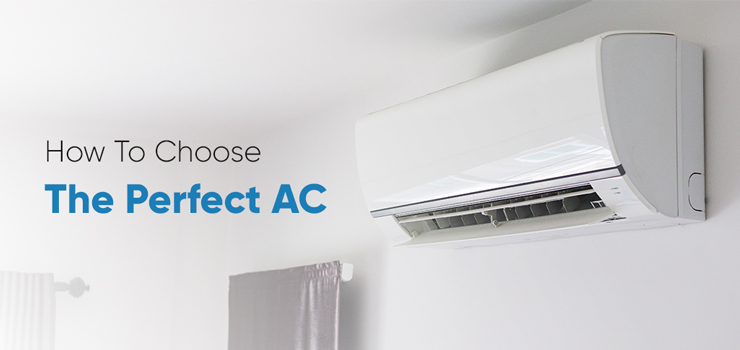Here is the guide to find and purchase the best air conditioner. When it comes to battling the sweltering heat and humidity of country, having a reliable and efficient air conditioner is essential. A good air conditioner not only cools the air but also filters it, making the indoor environment comfortable and healthy. However, with the plethora of options available in the market, finding the best air conditioner in Dhaka can be overwhelming. But worry not! We have put together a comprehensive guide to help you make an informed decision and purchase the best air conditioner for your needs in Dhaka.
Assess your needs: The first step in purchasing the best air conditioner is to assess your needs. Consider the size of the room or space where you want to install the air conditioner. Measure the room’s dimensions, and calculate the square footage to determine the cooling capacity you need. A general rule of thumb is to have 1 ton of cooling capacity for every 120-150 square feet of space. Additionally, consider factors such as the room’s orientation, insulation, and sunlight exposure, as they can affect the cooling requirements.
Choose the right type of air conditioner: Dhaka offers various types of air conditioners, including window, split, cassette, and portable units. Each type has its pros and cons, so choose the one that best suits your requirements. Window air conditioners are affordable and easy to install, but they are bulky and require a window for installation. Split air conditioners, on the other hand, are more aesthetically pleasing, energy-efficient, and offer greater flexibility in installation. Cassette air conditioners are suitable for larger spaces, and portable air conditioners are mobile and can be moved around as needed.

Consider energy efficiency: In Dhaka’s scorching heat, air conditioners can consume a significant amount of energy, resulting in high electricity bills. Therefore, it’s crucial to consider the energy efficiency of the air conditioner before making a purchase. Look for air conditioners with a high Energy Efficiency Ratio (EER) and a good star rating. Higher EER and star ratings indicate better energy efficiency, which can save you money on your electricity bills in the long run.
Look for additional features: Air conditioners come with various additional features that can enhance their performance and convenience. Look for features such as a digital display, a remote control, a programmable timer, sleep mode, auto-cleaning, and air purifiers. These features can offer added convenience, energy savings, and improved indoor air quality.
Brand reputation and after-sales service: Consider the reputation of the brand and its after-sales service when purchasing an air conditioner. Choose a reputable brand with a track record of reliability, durability, and good customer reviews. A well-known brand is likely to have better after-sales service, including warranty coverage, maintenance services, and availability of spare parts, which can save you from potential hassles in the future.
Compare prices and deals: Air conditioners come in various price ranges, so it’s important to compare prices and deals from different retailers. Look for discounts, promotions, and package deals that may offer better value for money. Don’t just focus on the upfront cost of the air conditioner, but also consider its long-term operating costs, including electricity consumption and maintenance expenses.
Installation and maintenance: Proper installation and regular maintenance are crucial for the optimal performance and longevity of your air conditioner. Make sure to hire a professional technician for installation to ensure that the air conditioner is installed correctly and meets safety standards. Additionally, follow the manufacturer’s guidelines for maintenance, such as cleaning or replacing filters, cleaning coils, and scheduling annual maintenance checks. Regular maintenance can improve the efficiency of your air conditioner and extend its lifespan.
Where to buy air condition
When it comes to buying an air conditioner in Bangladesh, there are several options available. Here are some popular places where you can purchase air conditioners in Bangladesh:
Authorized Showrooms: Many well-known air conditioner brands have authorized showrooms or dealerships across Bangladesh. These showrooms offer a wide range of air conditioners from different brands, along with reliable after-sales services, such as installation, warranty, and maintenance. You can visit these showrooms to see the latest models, compare features and prices, and make an informed decision based on your requirements.
Electronics Markets: Bangladesh has several popular electronics markets where you can find air conditioners from different brands. Markets such as New Elephant Road, Bashundhara City Shopping Mall, Eastern Plaza, and Jamuna Future Park in Dhaka, and Chittagong’s GEC Circle and Mimi Super Market are well-known for their wide range of electronics, including air conditioners. These markets offer competitive prices and a variety of options to choose from.
Online Retailers: Online shopping has gained popularity in Bangladesh, and there are several online retailers that offer air conditioners from different brands. Platforms such as Daraz, AjkerDeal, Pickaboo, and Grameenphone’s GP Shop are popular online marketplaces where you can find air conditioners with detailed product descriptions, customer reviews, and competitive prices. You can also compare different models, read reviews, and make a purchase from the comfort of your home.
Brand Websites: Many air conditioner brands have their own official websites where you can directly purchase their products. These websites often offer special deals, promotions, and discounts, and provide detailed information about the features, specifications, and prices of their air conditioners. You can also find customer reviews and testimonials on these websites, which can help you make an informed decision.
Supermarkets and Department Stores: Supermarkets and department stores in Bangladesh also offer air conditioners from different brands. Stores such as Meena Bazar, Shwapno, and Metro Cash & Carry have dedicated electronics sections where you can find air conditioners along with other home appliances. These stores often offer competitive prices and promotions, and you can physically see and compare different models before making a purchase.
Second-hand Markets: If you are on a budget, you can also explore second-hand markets or online classifieds, such as Bikroy, to find used air conditioners. However, when buying a used air conditioner, make sure to thoroughly inspect the unit for any damages, check its performance, and inquire about its maintenance history to ensure that you are getting a reliable product.
In conclusion, there are several options for buying air conditioners in Bangladesh, including authorized showrooms, electronics markets, online retailers, brand websites, supermarkets, department stores, and second-hand markets. It’s important to compare features, prices, and after-sales services, and choose a reputable seller or retailer to ensure that you get the best air conditioner that meets your requirements and budget.
Residence AC vs Commercial AC
Residential air conditioners and commercial air conditioners differ in various aspects, including their design, capacity, installation, and usage. Understanding the differences between these two types of air conditioners can help you make an informed decision when choosing the right AC system for your specific needs. Here’s a comparison between residential and commercial air conditioners:
Design: Residential air conditioners are designed to cool individual rooms or small areas in homes, apartments, or small offices. They are typically smaller in size and have lower cooling capacities compared to commercial ACs. On the other hand, commercial air conditioners are designed to cool larger spaces, such as commercial buildings, offices, restaurants, hotels, shopping malls, and other commercial or industrial spaces. They are usually larger in size and have higher cooling capacities to cater to the larger areas they need to cool.
Capacity: Residential air conditioners typically have lower cooling capacities, ranging from 1 to 5 tons, depending on the model and type of AC unit. They are designed to provide comfort cooling for smaller spaces, such as bedrooms, living rooms, or small offices. In contrast, commercial air conditioners have higher cooling capacities, starting from 5 tons and going up to several hundred tons, depending on the type and size of the commercial space they are intended to cool.
Installation: Residential air conditioners are usually installed in windows, walls, or as split systems, where the indoor unit is installed inside the room and the outdoor unit is placed outside the building. They are relatively easier and quicker to install compared to commercial ACs. Commercial air conditioners, on the other hand, require more complex installation processes, including ductwork, piping, and other infrastructure, depending on the size and layout of the commercial space. Installation of commercial ACs may require professional expertise and specialized equipment.
Usage: Residential air conditioners are typically used for personal comfort cooling in homes or small offices, and they are usually operated for a few hours a day during the hot season. Commercial air conditioners, on the other hand, are designed for heavy-duty usage in commercial or industrial spaces where they may need to operate for extended hours, often round-the-clock, to maintain comfortable indoor temperatures for occupants or to meet specific operational requirements of the commercial space.
Features: Commercial air conditioners often come with advanced features, such as multiple zone cooling, variable speed compressors, programmable thermostats, and energy management systems, which are designed to cater to the specific needs of commercial spaces. They may also have higher efficiency ratings to meet energy codes and regulations for commercial buildings. Residential air conditioners may have simpler features suitable for home use.
Cost: Commercial air conditioners are generally more expensive than residential air conditioners due to their larger size, higher cooling capacities, and advanced features. Commercial air conditioning systems also require additional costs for installation, maintenance, and operation due to their complexity and heavy-duty usage. Residential air conditioners are usually more affordable in terms of upfront costs and operational expenses.
Residential air conditioners and commercial air conditioners have significant differences in terms of design, capacity, installation, usage, features, and cost. It’s crucial to consider your specific cooling needs, the size and layout of the space, and your budget when choosing between residential and commercial air conditioners. Consulting with a professional HVAC contractor can help you make the right decision and ensure that you select an air conditioning system that best meets your requirements.
Calculate the required AC capacity according to the room space
Calculating the required air conditioning (AC) capacity for a room involves determining the cooling load, which is the amount of heat that needs to be removed from the room to maintain a comfortable indoor temperature. Here are the steps to calculate the required AC capacity for a room based on its space:
Measure the room dimensions: Measure the length, width, and height of the room in feet. Multiply these three measurements to calculate the room’s volume in cubic feet.
Determine the insulation level: Assess the insulation level of the room. Is it well-insulated, moderately insulated, or poorly insulated? Insulation can affect the cooling load as it determines how much heat enters or leaves the room. For example, a well-insulated room may require less cooling capacity compared to a poorly insulated room.
Consider the orientation and location of the room: The orientation and location of the room can also impact the cooling load. If the room receives direct sunlight for extended periods of time during the day, it will require more cooling capacity. Similarly, if the room is located on the top floor or near heat-generating areas, such as a kitchen or laundry room, it may require additional cooling capacity.
Calculate the cooling load: Use a cooling load calculation formula or an online cooling load calculator to estimate the cooling load of the room. The cooling load is typically expressed in British Thermal Units (BTUs) per hour. The formula for estimating the cooling load is:
Cooling Load (BTU/hr) = Room Volume (cubic feet) x Cooling Load Factor x Insulation Factor
The cooling load factor and insulation factor depend on various factors, such as the room’s orientation, location, insulation level, and usage. These factors can vary and may need to be adjusted accordingly.
Select the appropriate AC capacity: Once you have calculated the cooling load for the room, you can choose an air conditioner with the appropriate cooling capacity. AC units are rated in BTUs per hour, and their capacity should match or slightly exceed the calculated cooling load for the room. It’s recommended to choose an AC unit with a slightly higher capacity to ensure optimal performance and efficiency.
It’s important to note that other factors, such as the number of occupants in the room, heat-generating appliances, and ventilation rate, can also affect the cooling load. Consulting with a professional HVAC contractor or using a comprehensive cooling load calculation tool can provide a more accurate estimation of the required AC capacity for your room, ensuring efficient and effective cooling performance.
How to take care Air Conditioner
Taking care of your air conditioner is essential to ensure its longevity, performance, and energy efficiency. Regular maintenance and proper usage can help you avoid unnecessary repairs, reduce energy consumption, and extend the lifespan of your AC. Here are some tips for taking care of your air conditioner:
Regular Cleaning: Dust, dirt, and debris can accumulate on the air filters, coils, and vents of your air conditioner, which can affect its performance and efficiency. Clean or replace the air filters every month or as recommended by the manufacturer. Clean the coils and vents periodically to remove dirt and debris. Keeping your AC clean can improve its airflow, reduce strain on the system, and prevent dust and allergens from circulating in your home.
Proper Usage: Use your air conditioner judiciously to avoid overloading the system and save energy. Set the thermostat to an appropriate temperature, preferably between 24-26 degrees Celsius, and avoid setting it too low as it can increase energy consumption. Use the “Auto” mode instead of the “On” mode to allow the AC to automatically adjust its fan speed and compressor operation based on the room temperature. Close doors and windows to prevent hot air from entering the room while the AC is running.
Regular Maintenance: Schedule regular maintenance for your air conditioner to keep it in optimal condition. Hire a professional technician to inspect and service your AC at least once a year or as recommended by the manufacturer. The technician can clean the coils, check refrigerant levels, tighten connections, lubricate moving parts, and identify any potential issues before they become major problems. Regular maintenance can improve the efficiency of your AC, extend its lifespan, and prevent breakdowns.
Protect from Power Surges: Power surges can damage your air conditioner’s electrical components, so it’s important to protect it from power fluctuations. Install a surge protector or voltage stabilizer to safeguard your AC from voltage spikes or drops. Unplug your AC during thunderstorms or when it’s not in use for an extended period.
Keep Outdoor Unit Clean: If you have a split air conditioner with an outdoor unit, make sure to keep it clean and free from debris. Trim any vegetation or plants around the outdoor unit to ensure proper airflow. Avoid placing any objects on top of the unit or obstructing its airflow.
Check for Leaks: Periodically check your air conditioner for any signs of refrigerant leaks, such as hissing sounds, oily spots, or reduced cooling performance. If you suspect a refrigerant leak, immediately call a professional technician to repair it, as low refrigerant levels can cause your AC to work harder and consume more energy.
Use Genuine Parts: If your air conditioner requires any repairs or part replacements, always use genuine parts from the manufacturer or authorized dealers. Using counterfeit or low-quality parts can compromise the performance and reliability of your AC.
By following these care tips, you can ensure that your air conditioner performs optimally, consumes less energy, and has a longer lifespan. Regular maintenance and proper usage can help you enjoy a cool and comfortable environment in your home while saving on energy bills and avoiding costly repairs.












